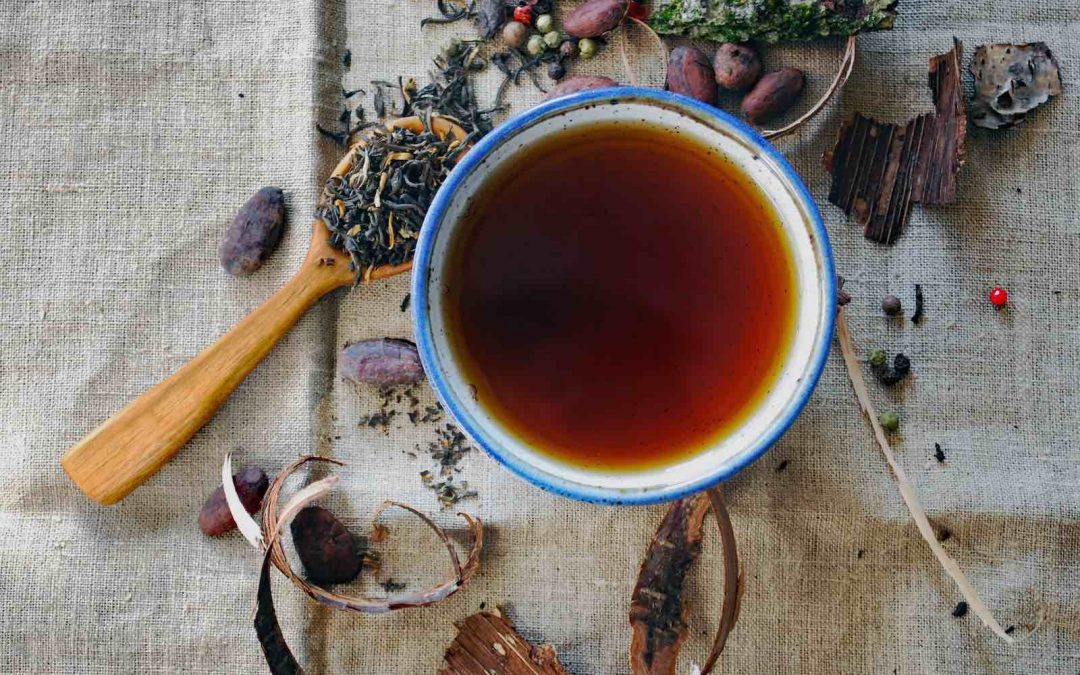The tea industry is in an uproar about creating a concrete definition for specialty tea! Recently the European Speciality Tea Association (ESTA) attempted to come up with a working definition for specialty tea, and even though they declared it a work in progress, plenty of other organizations seemed to have decided that their definition was lacking.
At the root of this controversy is the question: What is “specialty tea”?
Maybe this all leads to more basic questions, like:
-
- What is Tea?
- What is “specialty tea”?
- Who cares…?
1. What is tea? – According to Wikipedia:
“Tea is an aromatic beverage prepared by pouring hot or boiling water over cured or fresh leaves of Camellia sinensis, an evergreen shrub native to China and other East Asian countries.[3] After water, it is the most widely consumed drink in the world.” *
True Tea, made from the Camellia sinesis plant comes in half a dozen varieties: green, black, white, oolong, puer and dark teas. So, technically if a “tea” doesn’t have Camellia sinesis in it, it’s not tea – which means of course that most herbal teas including chamomile and rooibos, aren’t technically tea.
2. So, What is “specialty tea”
Tea bags that you buy commercially and are probably most familiar with, use dusts and fanning. Dusts are remnants of tea leaves after they’ve passed through a grading machine. Fanning are very small broken leave pieces.
Specialty tea has generally been considered a higher quality tea. Tea leaves are graded by quality. Whole leaves and some large broken leaves are often used for specialty teas. But this definition of specialty tea is not strictly defined… or hasn’t been up to this point.
3. Who cares…?
Well, the tea industry, for sure!
Earlier this year, ESTA attempted to help differentiate between commodity tea and specialty tea by pointing to factors that should include:
“the known supplier, the known farm, the known location, the known production dates, and the known processing method. According to ESTA, specialty tea can also be defined by the quality of the five criteria below:
- The dry leaf
- The aroma of the dry leaf
- The colour and clarity of the liquor
- The flavour and mouthfeel of the liquor
- The appearance and aroma of the wet leaf” **
ESTA’s executive director described their document as “close to a description” more than a definition and hoped that it would encourager “ongoing debate” – and sure enough, that’s what happened!
Soon after the ESTA paper was published, a joint statement was released by three large tea organizations, the Tea Association of the USA (TAUS), Tea and Herbal Infusions Europe (THIE) and the Tea and Herbal Association of Canada (THAC). They stated that elements like knowledge of the supplier, the location of the farm and processing plant were already a part of food and safety laws around the world.
THAC, THIE and TAUS also noted that the five criteria being used to define specialty tea are “the same criteria used by every tea taster in the industry, regardless of ‘specialty’ or ‘traditional’ label. Although all the above may be a part of ‘specialty tea,’ suggesting they are not a part of ‘traditional’ tea is factually incorrect.” **
The ESTA definition does’t address whether flavored or blended tea could be considered “specialty” tea. It doesn’t specify whether it must contain Camellia sinesis. There are also questions about how to classify high, mid, and low grown teas because some estates may have a combination of elevations.
So at the moment, it’s not especially clear that the world is any closer to a definition for specialty tea, but it doesn’t seem that consumers are not especially concerned. Most consumers find something they like and enjoy it in spite of what it’s called. As for the industry, it seems likely to continue duking it out over a definition. Perhaps we will hear more at the upcoming North American Tea Conference, World Tea Conference & Expo or Global Tea Initiative Tea Colloquium.
* https://en.wikipedia.org/wiki/Tea
** https://www.teaandcoffee.net/blog/27470/the-brewing-debate-around-defining-specialty-tea/


Recent Comments